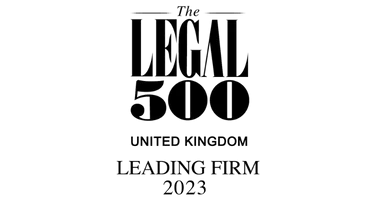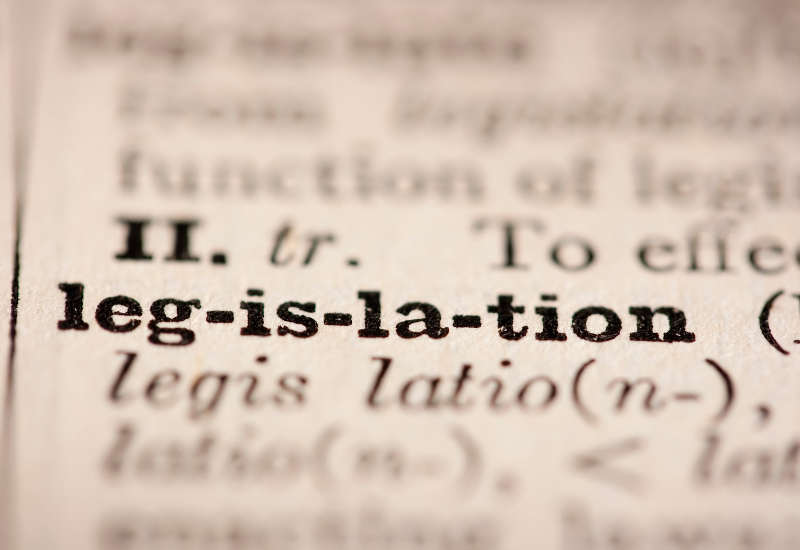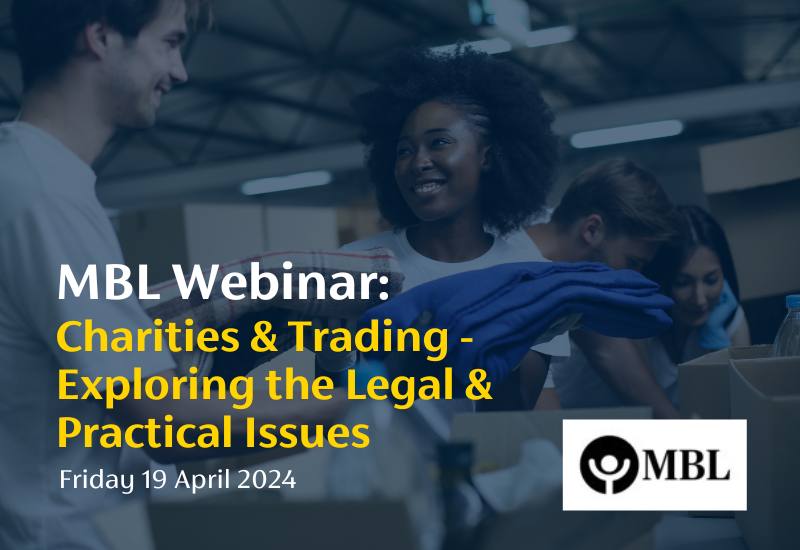Charities face an additional layer of administration and regulation and need to be aware of and ensure compliance with their governing document, charity law and Charity Commission guidance (as well as any other applicable legislation, depending on their structure).
We can help charities and not for profit organisations on a wide range of governance related requirements from formation and infancy of the charity through to general governance and management, policies, dealing with any unexpected events or issues and constitutional and structural changes.
Some key examples of the type of governance related work you and your trustees may come across and how we may be able to help are set out below.
Constitutional reviews and amendments to governing documents:
Organisations grow and develop over time and you need to ensure that your governing document keeps up with changes in the charity and any social or economic changes. We can assist with:
- Advice on amendments and any restrictions within the governing document
- Drafting applications to the Charity Commission for consent to regulated amendments
- Use of constitutional or statutory powers to adopt amendments
- Advice on filing requirements
- Applications to the Charity Commission for a Scheme.
Trustee roles and duties:
A trustee is almost always* a voluntary role and people are giving up their time to help the charity fulfil its charitable purposes for the benefit its beneficiaries and the wider public benefit. However it can be a time consuming role and trustees need to ensure that they are aware of their roles and duties in their capacity as a charity trustee and ensure they seek appropriate advice and support where necessary. Some examples of where assistance may be sought include:
- Reviewing and/or amending the process for appointment and governance of meetings
- Trustee recruitment and identification of roles
- Manging conflicts of interest
- Advice in connection with payments to trustees
- Trustee disputes
- Training on trustee duties.
* there are some limited circumstances where a trustee may be employed provided the charity’s governing document permits this and/or Charity Commission consent has been obtained.
Charity regulation:
Charities have an additional layer of regulation and they need to be aware of these obligations, including any changes and updates. We can assist with how to manage these requirements and implement changes where required. This may include:
- Advice on governance and regulation, including Charity Commission requirements and specific issues affecting charities
- Applications to the Charity Commission for consent and/or Charity Commission Orders where applicable.
Membership:
Some charities and not-for-profit organisations have a membership which is wider than the trustee board. If your organisation is structured in this way you need to comply with your governing document and any connected constitutional documents around engagement with and rights of your members. Depending on your structure you may find you need support with:
- Membership agreements, application forms and processes for appointment and/or removal
- Membership rights
- Member decisions and resolutions
- Issues in connection with membership.
Policy documents:
Charities should ensure they have appropriate policies in place relating to both the governance and operational aspects of the charity. This may range from a reserves policy, grant making policy and conflict of interest policy to name just a few. We recommend that charities have a governance manual where copies of the governing document together with all the relevant key policies can be kept together. This can act as a useful resource tool for existing trustees and senior management teams as well as being a good resource to provide to new trustees on appointment. We can assist with:
- Drafting and/or reviewing policies
- Advice in connection with policies
- Preparation of governance manual.
Permanent endowment:
Many charities, often those that have been in existence for some time, hold permanent endowment, which can include property and/or investments. Sometimes it can be difficult to identify what may or may not be classed as permanent endowment and it is important to comply with any restrictions attached to the endowment. In addition, as circumstances change so may a charity’s needs and continuing to hold the permanent endowment in the same way may no longer be in the best interests of the charity. We can assist with:
- Management and identification of permanent endowment
- How to treat the permanent endowment
- Investment of permanent endowment
- Options for releasing some or all of the permanent endowment.
Other examples of governance work we assist with include:
- Royal Chartered bodies:
- Creation of and amendments to Royal Charters
- Liaising with the Privy Council Office and advising on processes.
- Advising Co-operative and Community Benefit Societies and social enterprises and non-charitable not-for-profit organisations, including:
- Formation of new entities
- Amendments to constitutions
- Change in legal structure.
- Charities working outside of England and Wales:
- Advising international charities and UK charities working in different jurisdictions on the requirements for charities in England and Wales
- Cross border regulation issues, including dual registration in Scotland and England and Wales.
- Exempt and excepted charities
- Governance advice to exempt and excepted charities including academy trust companies and excepted charities which include some excepted churches, schools, and forces charities.
- Advising academy trust companies on governance matters, and the conversion of schools and mergers or transfers of existing academies.
- Non-charitable not-for-profit organisations and social enterprises
- Advice and formation and governance of non-charitable non-profit organisations which may include community and benefit societies, non-charitable companies and community interest companies (CIC).
Why choose Trethowans?
Our charity lawyers are experts on advising on governance and related matters and would be delighted to discuss your requirements and any queries you have. Our wider charities practice means that we have charity experts in different teams which enables us to advise charities on a wide spectrum of legal matters with the knowledge and understanding of a charity’s specific legal needs. This includes additional statutory obligations imposed by the Charities Act and Charity Commission guidance and obligations.
To get in touch with one of our specialist charity lawyers please give us a call or contact us using our enquiry form and we will be happy to help.











